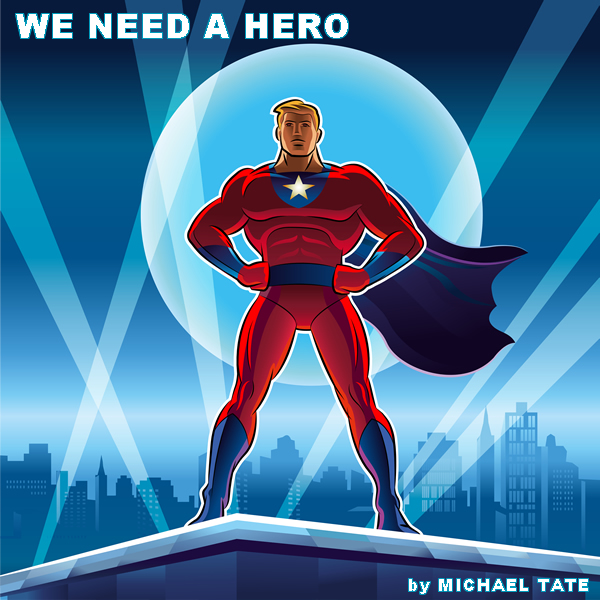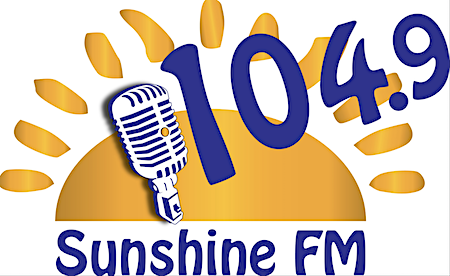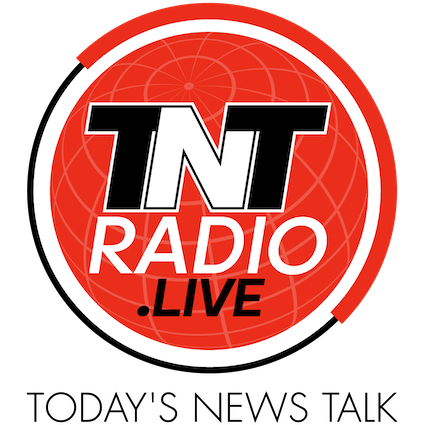We Need A Hero

Recently I have been given cause to reflect and think upon my past fifteen years or so of working in the commercial radio industry; on what’s been important and what hasn’t. On what I’ve done right and wrong, of what I’m proud and of what I’m not. I’ve thought a lot about what I’ve contributed, what I haven’t, and the times I’ve stood idly by.
The commercial radio industry in and of itself is teetering on the precipice of change, some of us are eagerly preparing for the future, some are ignoring the technology shift completely, and others have closed their doors already.
As a collective why is the commercial radio industry always in so much turmoil? Why is it always drowning in so much indecision and suffering so much self-doubt? And why do we always see ourselves as the poor broadcast cousin, a secondary medium?
Through recent years we’ve been faced with discussions of radio’s relevance, of its dying localism, of its dwindling audiences and of what formats should or shouldn’t be. The latest doomsday prophets point to our decay by online streamers, ever-changing media use, and the boom in mobile use and the way we use them.
Yet in reality isn’t the greatest threat we face the enemy within?
Haven’t we simply been suffering an ongoing crisis of confidence?

Most radio salespeople I’ve met are under-trained and underpaid; or worse, under-trained and overpaid. Yet a common thread through a large percentage of us tends to be a dark unspoken secret that radio advertising doesn’t really work at all, and that we are indeed getting it wrong as an industry.
We spend so much time justifying our formats; leaning on research; regurgitating cold lifeless numbers to agencies; and publishing facts about why other media isn’t as effective as radio that we’ve come to miss the point.
The first extended broadcast of the human voice was transmitted through the air on December 24, 1906 from Brant Rock, Massachusetts. Reginald Fessenden was convinced the “wireless telegraph”, which at the time carried only the beeps of Morse code, could also carry the human voice.
An account by Fessenden’s wife reports her husband’s historic transmission, as sailors on ships across the Atlantic heard for the first time what they had only dreamed about, and never thought possible.
“…a human voice coming from their instruments – someone speaking. Then a women’s voice rose in song. It was uncanny! Many of the radio operators called their officers to come and listen; soon the wireless rooms were crowded. Next someone was heard reading a poem. Then there was a violin solo; then a man made a speech.”
Fessenden himself played his violin, read from the Christmas story from the Book of Luke, and played a recording of Handel’s “Largo.”
 Can you imagine?
Can you imagine?
People gathered around a radio listening intently?
Compelling, creative, relevant and relatable content.
A while back I read a speech by President Jimmy Carter. He delivered this particular speech on July 15, 1979. I have held the essence and spirit of these words close to me ever since. Carter was appealing to America to come together in a time of crisis.
With apologies to the President and with your indulgence, I have paraphrased this speech and created something for those who are (perhaps) struggling over the future of radio.
As an industry we don’t speak or listen to people, our audience, enough anymore; and in general there is dissent and disagreement as to the direction commercial radio should take. We shouldn’t be talking about formats, advertising demographics, or the mechanics of a good media buy – we should be seeking an understanding and direction for our industry’s common good.
As an industry Radio is in trouble – so we need to talk about blood and sweat and tears, not what’s right or what’s wrong or of the things we can’t fix.
We need to take responsibility for our own destiny – yet most of all we need a leader.
And for this I beg your forgiveness, Commercial Radio Australia is not leading the radio industry – it’s simply managing an association.
I will say to the CRA however, if you lead we will follow.
The major networks are not the only ones who are important to the health of commercial radio. Remember, you can’t sell anything to an advertiser, an agency, or at the stock exchange unless someone somewhere does the hard work first – there are 100’s of stations outside the metro’s – some struggling day-to-day just to keep the doors open.
They don’t care about Pandora, Spotify, or online. The true threat for most, for all of us, is invisible if we’re not truly looking, or genuinely seeking the truth.
It is a crisis of confidence and a crisis of responsibility.
It is a crisis that strikes at the very heart and soul and spirit of our industry.
We have been acting like a secondary medium for far too long, and are suffering the consequences as a result. We can see this crisis in the growing doubt about the meaning of what it is we are doing as an industry and in the end what it is we are delivering to the community at large.
The confidence that we once had as an industry was not simply some romantic dream or some lost mission statement that fell from the wall – radio is real.
It has shaped history; it has educated, enlightened and entertained.
But just as we are losing our confidence in the future, we are also beginning to close the door on this past.
In an industry that was once proud of our achievements, our ability to intimately reach into the minds and hearts of people, and our ability to create close-knit communities, too many of us now tend to worship what could be described at best as self-indulgent programming, and hard-line inventory management.
A radio station’s identity is no longer defined by being a reflection of its community, but by some lazy generic term. Haven’t we discovered yet that a templated format doesn’t satisfy our audience’s longing for community and meaning? As one who works in the industry, when was the last time you were delighted, entertained, or educated by a broadcast?
When was the last time you were drawn to the radio and listened intently?

No this isn’t a message of happiness or reassurance, but it is the truth and it is a warning isn’t it? These changes to radio didn’t happen overnight. They’ve come upon us gradually over the last few generations.
Has the gap between our audience and our programmers ever been so wide?
It’s time for honest answers, not easy answers; clear leadership, not false claims and wishful thinking.
First of all, we must face the truth, and then we can change our course. We must have faith in each other, faith in our ability to change, and faith in the future of commercial radio. Restoring that faith and that confidence to the radio industry is now the most important task we face. It is the true challenge of this generation of radio people – it is our challenge if we dare to take it up.
Let’s put it this way:
“We’ve got to stop crying and start sweating, stop talking and start walking, stop cursing and start praying. The strength we need will not come from a governing body, it must come from all of us; from every broadcast association and every terrestrial radio station across the world”.
We are at another turning point in our industry’s history. There are two paths from which to choose. One is a path of slow demise, the path that leads to constant fragmentation and self-interest. Down that road lies the mistaken idea of the right to grasp for ourselves some advantage over others. It is a certain route to failure.
All the lessons of our heritage, all the promises of our future point to another path, the path of common purpose and the restoration of commercial radio as the innovator, as a leading and not secondary medium. That path leads to true benefits for our communities, our audiences, our advertisers and ourselves.
You know we can do it.
We have the resources – and more importantly we have the people.
There is no promise that the return to ‘true’ radio will be easy. There is no promise a quick way out will be found; like anything worthwhile it’s going to take some time. Little by little we can and we must rebuild our confidence. We can spend until we empty our pockets, and we may summon all the wonders of research and science. But we can succeed only if we tap our greatest resources – our risk takers, and our passionate radio people.
As an industry the focus of our governing bodies and associations shouldn’t be to market the merits of radio to advertisers and to us (we already know it works); we should be marketing radio to people, to the listeners – to bring them back. Do that and the audiences will come; do that and the advertisers will follow.
But above all let your voice be heard.
Whenever you have a chance, say something good about our industry, and about your station – don’t bemoan us over the water cooler. Don’t think one thing and say another – change what you do, or change what you do.
In the days to come we should commit ourselves to a rebirth of the radio – and a renewal of confidence within ourselves.
Sell without regret.
Michael Tate: Sales Director International – NRS Media
 A foundation employee during its initial five year start-up phase Michael Tate has returned to NRS Media after 15 years of working internationally to take up tenure as the company’s Sales Director in its International office.
A foundation employee during its initial five year start-up phase Michael Tate has returned to NRS Media after 15 years of working internationally to take up tenure as the company’s Sales Director in its International office.
Michael has a vast knowledge of effective media use, advertising and advertising sales management built over the last 25 years working with some of the world’s largest TV and radio groups. Based in San Francisco for over 10 years, he also worked ‘client-side’ in a National Media appointment for the Toyota Motor Corporation in Australia; coordinating all the media buying decisions for the auto giant helping Toyota become the No.1 seller of motor vehicles.
Over the last decade Michael has advised all types of companies around the world on best effect advertising via over 3500 workshops attended by over 45,000 business owners and managers, generating over $60,000,000 in direct sales advertising revenue.
He is a highly sought after key-note speaker and advertising sales trainer at major industry bodies like the Radio Advertising Bureau, the Texas Broadcasters Association, and the Oregon Association of Broadcasters. Tate has successfully worked with advertising sales managers, their staff and clients in 12 countries including the USA, UK, Canada, Ireland, Norway, Malaysia, Taiwan, Hong Kong, Philippines and Australia.
You can find out more about NRS Media here or view Michael’s Linked In profile here.
Michael Tate has joined the team of Radio Today with weekly insights.


